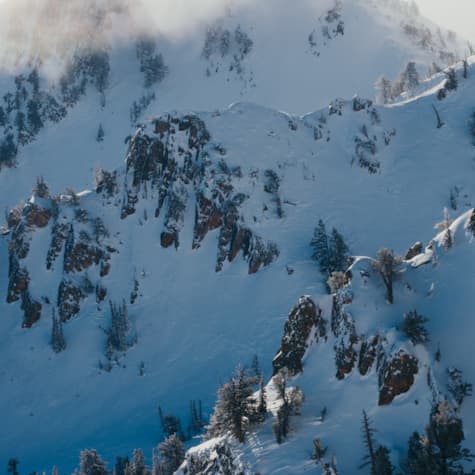


At Snowbasin, we are committed to always striving toward sustainability. We look for both industry standards and innovation to continue to put our best foot forward as stewards of the great outdoors. With these priorities in mind, Snowbasin proudly joined the NSAA Sustainable Slopes Commitment, a national ski area goal to create environmentally friendly operations. In that commitment, we pledge to:
Recently, Snowbasin was awarded NSAA's Golden Eagle Award for Innovation in Sustainability for helping to educate guests on environmental practices and creating a culture of sustainability. We remain focused on sustainable mountain operations and will continue to strive to conserve our national resources, for today’s mountain lovers and future generations.
At Snowbasin, we make every effort to conserve energy use. We have made significant upgrades to our building controls, snowmaking, and heating needs to reduce our energy consumption. Being energy efficient is good for the environment and benefits the community we share a grid with. We all win with sustainability.
Snowbasin has a robust waste diversion program. We reduce thousands of pounds of waste each year that would otherwise end up in our landfills. Reducing waste is an environmentally sound practice that also benefits our community. Weber County transfer station is rapidly nearing capacity. Weber County is already paying to ship much of its waste to other landfill areas. They no longer accept waste from residents of other counties. The urgency is upon us, and Snowbasin understands our responsibility to reduce our waste and leave space for years to come.
Snowbasin has a strong program for maintaining healthy ecosystems. We focus on wildlife habitats like bird nests, native plant species, erosion damage, and controlling invasive species of plants and insects. We know that healthy ecosystems clean air, provide drinking water, regulate climate, and provide many other human and animal health benefits. Snowbasin is committed to the ecosystems our community thrives on.
Snowbasin is a water-conscious operation. We have taken traditional measures to ensure we are water efficient. Some of those areas include updated appliances, low-water toilets, landscaping adjustments, and similar actions. We also go beyond the usual water conservation efforts with a water recapture tank, efficient wells, and more. In years of abundant water availability, this is important, but in years of drought, our community needs our diligence and they can count on us.